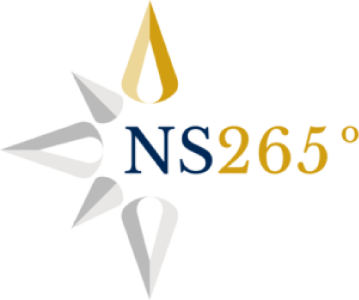P.E.
Physical activity and understanding of a healthy life style is promoted through the PE curriculum.
P.E.
Intent
At North Star 265°, the Physical Education Department recognises the vital role that physical activity and sport play in supporting the physical, emotional and mental well-being of young people with social, emotional and mental health needs. Our aim is to deliver a broad, balanced and inclusive PE curriculum that is ambitious, accessible and engaging for all.
Students frequently express how important PE is to them, and we take seriously our responsibility to provide a safe, supportive and enjoyable environment where they can thrive. Through participation in a wide range of physical activities, students have opportunities to enhance not only their fitness and motor skills, but also their emotional resilience, confidence and social connections.
Participation in both PE lessons and co-curricular activities allows students to develop the confidence to embrace new challenges, apply strategies for overcoming setbacks, and build positive relationships with peers. Our lessons are designed to meet individual needs through careful planning of objectives, environments and resources, ensuring that every student can experience success and progress.
High expectations are embedded throughout our PE curriculum. We promote consistent routines and model excellent sporting behaviour, nurturing pride in personal effort, skill development and positive attitudes. Students are encouraged to demonstrate resilience, perseverance, empathy and respect for others—qualities that contribute to personal growth and a lifelong love of physical activity.
Our curriculum builds progressively on prior learning through a range of familiar and motivating activities including invasion games, health-related fitness, net and wall games, athletics, gymnastics and outdoor and adventurous pursuits. Enrichment opportunities, such as participating in fixtures and visiting local sporting venues, further inspire students to lead active, healthy and independent lives.
This broad and inclusive curriculum ensures that every student can experience enjoyment, success and a sense of achievement in every lesson. Through well-sequenced learning and clear connections between topics, students develop the skills, knowledge and confidence to understand the purpose of what they are learning and to apply it to improve their own—and others’—sporting performance.
Implementation
To ensure our PE curriculum successfully meets the diverse physical, emotional and social needs of our learners, the following expectations underpin all lesson planning, schemes of work and long-term curriculum design:
- A safe and enabling environment: Lessons are delivered in a supportive setting where students feel confident to participate physically, emotionally and cognitively. Clear and consistently applied expectations promote positive behaviour, active listening and mutual respect.
- Established lesson routines: Each lesson follows a structured format, including travel to the activity area, introduction of learning objectives, practical engagement and a reflective plenary to assess understanding and progress.
- Effective use of learning support assistants: LSAs are actively involved in fostering inclusion, encouraging independence and supporting skill development during both practice and game-based situations.
- Use of visual and verbal supports: Lesson content is reinforced through visual prompts, key vocabulary and reference to prior learning displayed on noticeboards and whiteboards, ensuring accessibility for all learners.
- Assessment through dialogue: Skilled questioning is used to assess long-term learning, deepen understanding and link new content to future lessons and skill progression.
- High levels of physical engagement: Lessons are designed to maximise participation, improve health and fitness, and develop key skills through purposeful, active learning.
- Practical and competitive opportunities: Demonstrations and small-group activities support kinaesthetic learning, allowing students to practise skills, experience competition and apply tactics in a supportive environment.
- Teamwork and sportsmanship: Students are taught to understand rules, expectations and fair play, developing teamwork, communication and respect for others, while exploring different roles within sport.
- A broad and balanced curriculum: A varied programme builds on prior learning and provides opportunities for all students to demonstrate their abilities across a range of activities. This diversity promotes resilience, confidence and a positive attitude toward lifelong participation in physical activity.
Curriculum delivery
The PE long-term plan provides a broad and balanced programme that reflects the core areas of the National Curriculum. Students engage in a diverse range of physical activities, including invasion games, net and wall games, gymnastics, striking and fielding games, athletics, and rugby.
All students receive two 45-minute PE lessons each week, ensuring regular opportunities to develop physical skills, fitness, and teamwork.
Each lesson is guided by tailored learning objectives designed to ensure that all students can access the intended learning for that week. These objectives are supported by clear success criteria and key questions to promote reflection and understanding.
Personalised differentiation is embedded within planning and delivery, enabling all students—regardless of ability or need—to participate meaningfully and make progress.
Lessons follow a consistent structure, including an introduction and warm-up, focused skill development, and a plenary to consolidate learning and assess understanding.
Students are also given opportunities to experience additional roles such as officiating, scoring, and coaching. These experiences help develop communication, leadership, and social skills, while reinforcing respect, teamwork, and responsibility within a sporting context.
|
Core Skill Development
|
For all students to achieve their personal best in PE and sport, the key fundamentals of physical activity continue to be embedded: -Running. -Jumping. -Balancing. -Dodging. -Coordination. -Throwing. -Catching. -Kicking. -Striking. |
|
Apply to Demonstrate |
Pupils will apply the key fundamentals to a range of sports: -Football -Rugby -Basketball -Handball -Badminton -Cricket -Health related fitness -Trampolining -Athletics |
|
Teaching Games and Sport for wider Understanding |
To support a wider understanding pupil will be taught: -Rules, regulations and scoring systems in sports to promote sports leadership. -How to take part safely and demonstrate sportsmanship. -How sport and physical activity links to Healthy lifestyles and the promotion of physical, social and emotional well-being. -The importance of sporting values including respect for others and resilience to complete tasks. – To take pride in their own and other achievements, the school facilities and equipment. |
Impact
At North Star 265°, the PE Department is committed to ensuring that our curriculum effectively supports both learning and personal development for every student. We continually review and reflect on our teaching practice, assess student progress and engagement, and evaluate the breadth and accessibility of our curriculum and co-curricular offer to ensure it remains ambitious, inclusive and impactful.
Our curriculum has a measurable impact on students in the following ways:
- Safe and structured learning: Students understand and value the importance of a safe learning environment. Consistent routines and expectations enable them to engage fully, work purposefully and maximise lesson time to improve health, fitness and physical competence.
- Progression of skills and techniques: Students develop and refine their techniques across a broad range of sporting activities, enabling them to participate more independently and confidently in sport and physical activity both in and beyond school.
- Broadened sporting experience: Through exposure to a variety of activities, students gain knowledge of game rules, scoring systems and fair play, developing sportsmanship and respect for others.
- Personal growth and values: Students demonstrate key personal attributes such as respect, resilience, perseverance and empathy, which positively influence their learning, relationships and wider social experiences.
- Improved communication and teamwork: PE lessons provide rich opportunities to develop speaking, listening and collaborative skills. Students learn to communicate effectively, consider others’ perspectives, and reflect constructively on performance.
- Emotional resilience and confidence: Students learn to manage the emotional challenges of sport—including coping with setbacks, overcoming fear of failure and dealing with competition—building confidence, self-esteem and a growth mindset.
- Enhanced physical competence: Students improve key skill-related components of fitness, including agility, coordination, reaction time and balance, which contribute not only to sporting success but also to general health and cross-curricular learning.
- Increased participation and engagement: As confidence grows, students are more willing to take part in competitive sport, enrichment activities, school fixtures and reward trips, further enhancing their sense of belonging and achievement.
- Lifelong engagement in physical activity: Ultimately, students at North Star 265° will leave school with a clear understanding of how physical activity and sport contribute to long-term physical, social and emotional well-being. They are encouraged to continue their participation in local clubs and community activities as players, leaders and volunteers.
Swimming
Each class will experience 2 terms of swimming every year. Swimming lessons encourage the pupils’ confidence and enjoyment of swimming and water based activities. General fitness and stamina develop as pupils improve their ability to swim for longer distances. Lessons include important safety awareness and dangers of being in or near the water.
Pupils are grouped according to ability and can progress through beginner, intermediate and confident swimmers. The ability to swim widths and length of the pool are goals to achieve. Pupils’ performances are recorded and certificates can be earned for the different distances that the pupil can swim.

